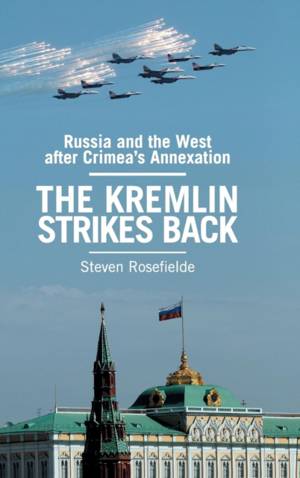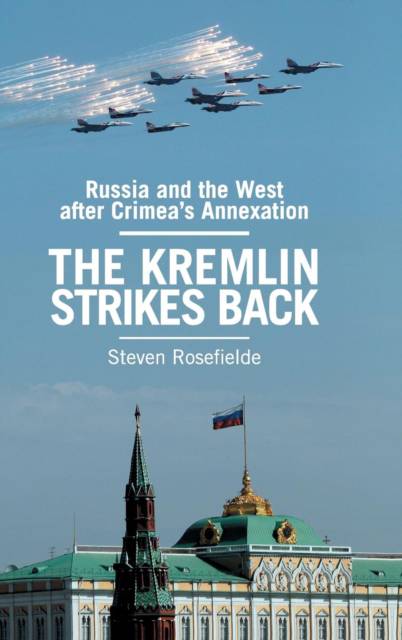
- Afhalen na 1 uur in een winkel met voorraad
- Gratis thuislevering in België vanaf € 30
- Ruim aanbod met 7 miljoen producten
- Afhalen na 1 uur in een winkel met voorraad
- Gratis thuislevering in België vanaf € 30
- Ruim aanbod met 7 miljoen producten
Zoeken
The Kremlin Strikes Back
Russia and the West After Crimea's Annexation
Steven Rosefielde
Hardcover | Engels
€ 180,45
+ 360 punten
Uitvoering
Omschrijving
America and Europe responded to Russia's annexation of Crimea on March 18, 2014 by discarding their policy of East-West partnership and reverting intermittently to a policy of cold war. The West believes that this on-again/off-again second Cold War will end with Russia's capitulation because it is not a sufficiently great power, while the Kremlin's view is just the opposite; Vladimir Putin believes that if Moscow has strategic patience, Russia can recover some of the geostrategic losses that it incurred when the Soviet Union collapsed. The Kremlin Strikes Back scrutinizes the economic prospects of both sides, including factors like military industrial prowess, warfighting capabilities, and national resolve, addressing particularly hot-button issues such as increasing military spending, decreasing domestic spending, and other policies. Stephen Rosefielde aims to objectively gauge future prospects and the wisdom of employing various strategies to address Russian developments.
Specificaties
Betrokkenen
- Auteur(s):
- Uitgeverij:
Inhoud
- Aantal bladzijden:
- 312
- Taal:
- Engels
Eigenschappen
- Productcode (EAN):
- 9781107129658
- Verschijningsdatum:
- 28/12/2016
- Uitvoering:
- Hardcover
- Formaat:
- Genaaid
- Afmetingen:
- 154 mm x 240 mm
- Gewicht:
- 544 g

Alleen bij Standaard Boekhandel
+ 360 punten op je klantenkaart van Standaard Boekhandel
Beoordelingen
We publiceren alleen reviews die voldoen aan de voorwaarden voor reviews. Bekijk onze voorwaarden voor reviews.











